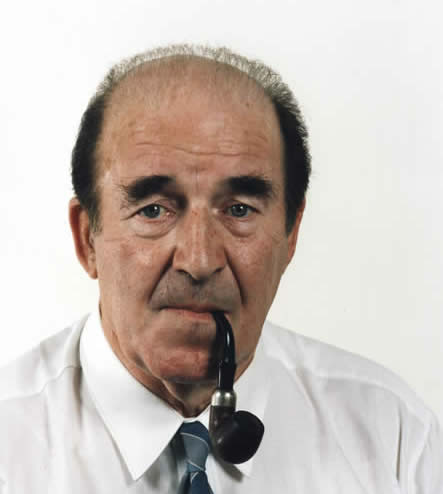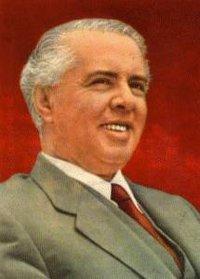Regular readers of this blog will know to expect tributes to the most unlikely people, but I would hazard a guess that the late Neil Blaney will raise a few eyebrows. I should explain at the outset that I’m not going to deal mainly with Neil’s consistently strong line on the national question, which by itself marks him out as almost unique among southern politicos, but with Neil’s standing as one of the supreme technical adepts of Irish electoral politics.
Not many people bother to read The Donegal Mafia, which is a pity, not only because it’s one of the very few attempts – possibly the first, if I’m not mistaken – to use rigorous sociological categories to analyse Irish politics, but because it provides a snapshot of the Blaney machine – the organisation crafted by old Neil in the ’30s and ’40s, and honed to perfection by Neil Óg in the ’50s and ’60s – in its pomp, when still part of the national Fianna Fáil party. This was, at its peak, a political machine that makes Bertie’s operation in Dublin Central look almost dilettantish. This was why the national party put Neil in charge of running by-election campaigns, which he did with military efficiency and an enviable record of success – Fianna Fáilers of a certain vintage will still recall the Donegal activists with awe. I never got to see the Blaneyites in operation at that time, but even in later years their independent organisation (Provisional Fianna Fáil) was deeply impressive.
The survival of an independent organisation for over 30 years is itself something of a testament to the machine. Aontacht Éireann was a failure, probably inevitably and for a number of reasons, but it was almost as if AÉ had managed to root itself locally and survive in Donegal. You could put that down to the local strength of republican traditions, but I think a big element was that, while Boland was a bit of a loner and always prone to taking stands on his personal honour, Blaney was not only a disciplinarian but also a disciplined party man. Kevin would often recount with exasperation how Neil wouldn’t take any decision without first getting the go-ahead from the Delphic Oracle, alias the North-East Donegal Comhairle Dáilcheanntair.
This sort of cohesion probably accounts for how the clientelist system developed up in Donegal. You often hear Fine Gael technocrats complaining about how TDs have no time for legislation because they’re tied up with running clinics to deal with the trivial complaints of the great unwashed. Believe it or not, that was sorted out in Donegal, as a pragmatic reaction to Neil (after his appointment to cabinet) spending much of his time in Dublin. Decades before dual mandate legislation was ever heard of, there was a division of labour with Neil holding the Dáil seat and his younger brother Harry sitting as his personal plenipotentiary on the county council. But the division of labour went beyond that – such was the discipline, cohesion and strict hierarchy of the machine that constituents would prioritise their complaints. For a trivial complaint, like the proverbial leaking roof, you wouldn’t bother Neil but would take your case to a councillor or party activist. Neil would be held in reserve for the big problems, the ones only Neil could solve.
At root, though, the secret of the Blaney machine lay not in Neil’s technical proficiency as a politician, great though that was, but in the political spirit animating his soldiers. For the Blaneyites, who would take part in elections in Derry as easily as in Donegal, politics never ceased to be a national crusade. And there’s a lesson here – political parties are voluntary organisations, and no matter how draconian the regime the worst penalty you can inflict on someone is to tell them they can’t come to meetings or pay dues any more. A really effective machine comes into being where the men and women at the grass roots are inspired to follow a great political cause. People who think that electoral success is an end in itself can’t really comprehend the mindset that sees it as a mere by-product of a bigger struggle.









